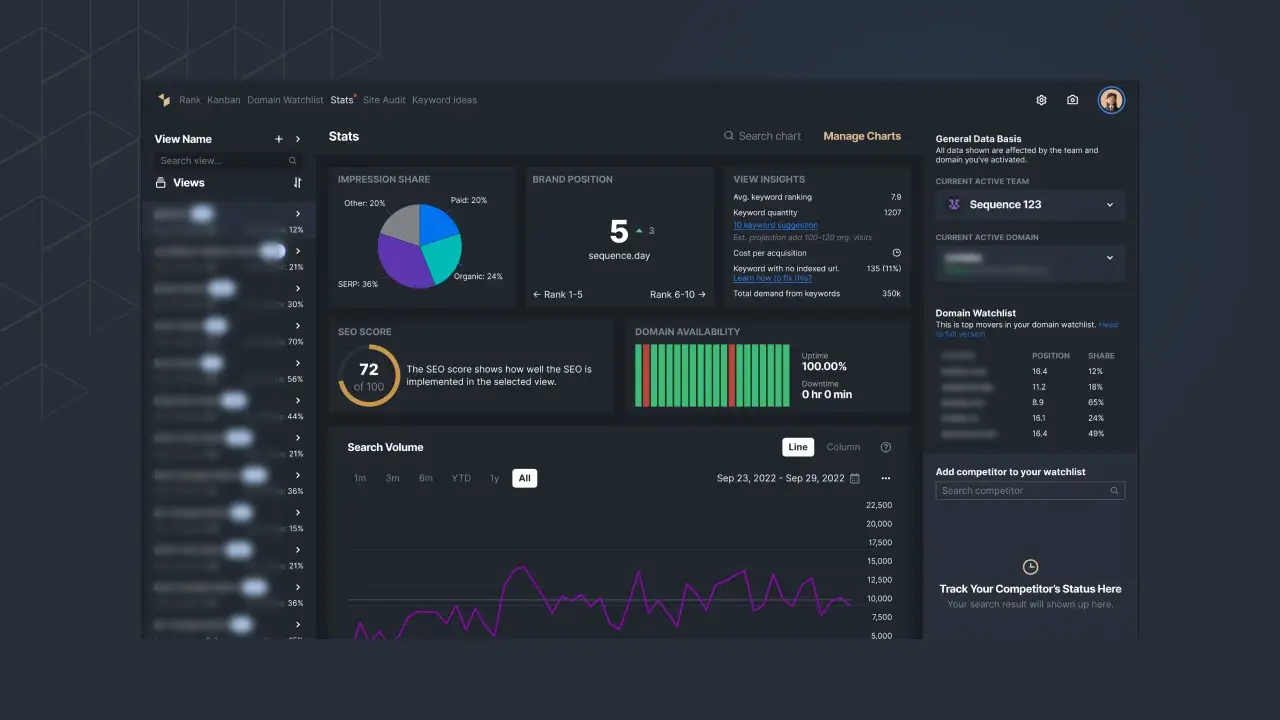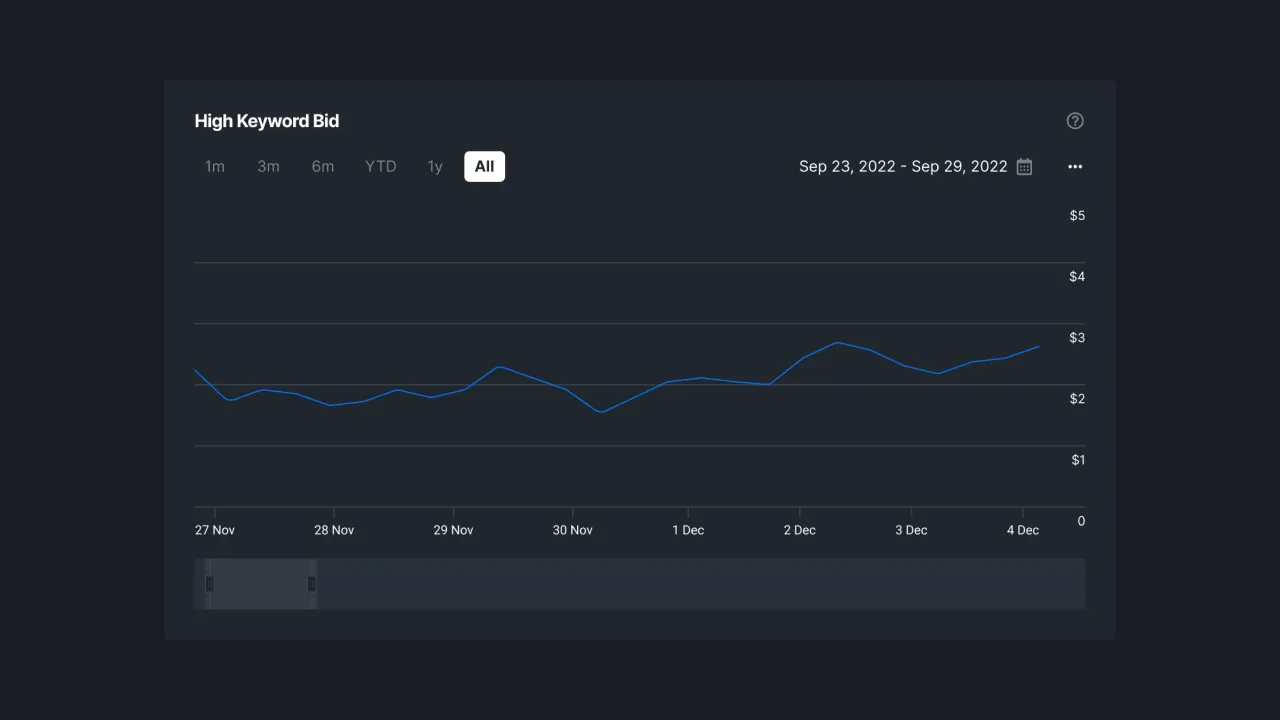Keyword Bid In SEO: A Basic Understanding
Keywords serve as the bridge that connects users' search queries with relevant web content, making them the foundation upon which effective SEO strategies are built.
In the realm of online marketing, keyword bidding adds another layer of strategy to the keyword game. While keywords lay the foundation for organic search rankings, keyword bidding enters the arena of paid advertising. In this article, you will learn about keyword bids in SEO from scratch.
What is Keyword Bidding?
keyword bidding is a strategic process that enables businesses to secure prime ad placements on search engine results pages (SERPs). At its core, keyword bidding involves participating in an auction-like system to determine the visibility of your ads when users search for specific keywords.
It is a financial commitment that businesses make to ensure their advertisements are displayed prominently alongside organic search results. The goal is to attract the attention of potential customers who are actively searching for products, services, or information related to the keywords you're targeting.
How Keyword Bidding Works
Keyword bidding operates on an auction-based system, where advertisers compete for ad placements in real-time auctions that occur each time a user initiates a search. Here's how it unfolds:
- User Query: A user enters a search query into a search engine, triggering an instantaneous auction. The search engine's algorithms quickly determine which ads are eligible to appear based on the keywords entered.
- Ad Eligibility: The auction considers various factors beyond the bid amount. Ad relevance, quality, historical performance, and user experience all play a role in determining ad eligibility.
- Bid Amount: Advertisers participating in the auction set a maximum bid amount, indicating the highest price they're willing to pay for a click on their ad. This amount determines your ad's competitiveness in the auction.
- Quality Score: Alongside the bid amount, your ad and landing page quality is assigned a Quality Score. This score reflects your ad's relevance and user experience, affecting its position and cost.
- Ad Rank Calculation: The search engine calculates an Ad Rank for each eligible ad, considering the bid amount, Quality Score, and expected impact of ad extensions and other ad formats.
Strategic Bidding Considerations
To effectively navigate keyword bidding, consider these strategic factors:
- Keyword Selection and Research: Choose keywords that align with your business goals and are relevant to your target audience's search intent. Highly relevant keywords lead to better ad performance.
- Bid Strategy: Decide on your bid strategy. You can bid aggressively for top positions or opt for a balanced approach to maximize return on investment.
- Budget Allocation: Allocate your budget wisely across various keywords to optimize your reach. High-performing keywords might justify higher bids, while experimentation is key for finding the right balance.
- Negative Keywords: Exclude irrelevant search terms using negative keywords. This helps avoid wasteful clicks and ensures your ads are shown to users genuinely interested in your offerings.
Monitoring Keyword Bid
While understanding the mechanics of keyword bidding is crucial, the journey doesn't end with setting bids. Successful advertisers should recognize the significance of continuous monitoring and optimization.
It is good to monitor and adjust your bids based on performance data regularly. Identify high-performing keywords and make informed bid adjustments to maintain or improve your ad's position.
You can check whether your target keyword has the potential to be at the top of the page bid or your low bid keyword through Sequence Stats. Even though this tool is specialized for SEO, it can be a valuable tool to support your SEM.
 |
|---|
| Picture 1: Stats feature in Sequence Stats. |
By tracking the keywords you target, this tool can tell you the high bid keyword and the low one. You just need to open your Sequence Stats account and go to the Stats menu. You will find many metrics data visualized into graphs and tables.
To check your high and low keyword bid, scroll down and find this graph.
 |
|---|
| Picture 2: High keyword bid graphic. |
This area can tell you the ups and downs of the price you need to target the keyword as an ad.
Importance of Monitoring Keyword Bid
Regularly monitoring your keyword bids allows you to adapt to the shifts, ensuring your ads remain relevant to search intent. not only that, but you can make data-driven adjustments for better performance.
Without regular monitoring, you might overspend on underperforming keywords. Identifying and addressing these inefficiencies will save your budget for high-impact keywords. This is why, this is not a once-done activity that you can see the results immediately. Keep your eye on the targeted keyword and analyze it deeply.
Conclusion
By grasping the fundamental concepts of keyword bidding and its role in search engine marketing, you've gained a solid foundation to embark on this journey. Remember, keyword bidding is not a static practice but a dynamic process that demands continuous monitoring, analysis, and adjustments.
SEO and SEM can intersect and affect your digital marketing, so, don't burden yourself with monitoring it manually, use Sequence Stats. Register to explore all its features now!